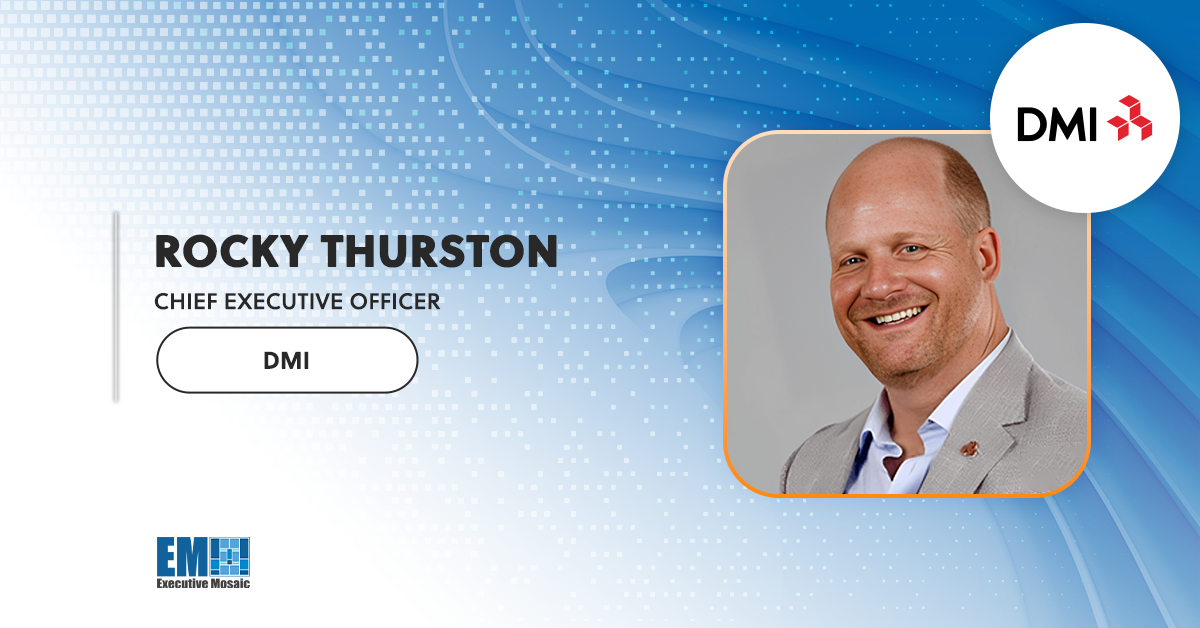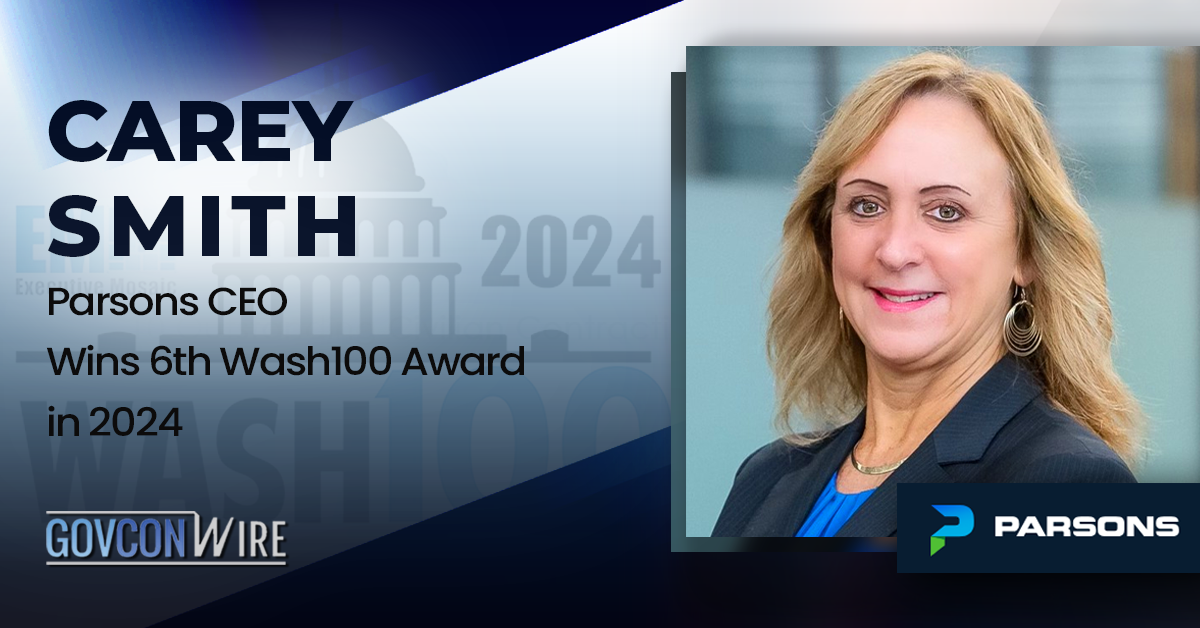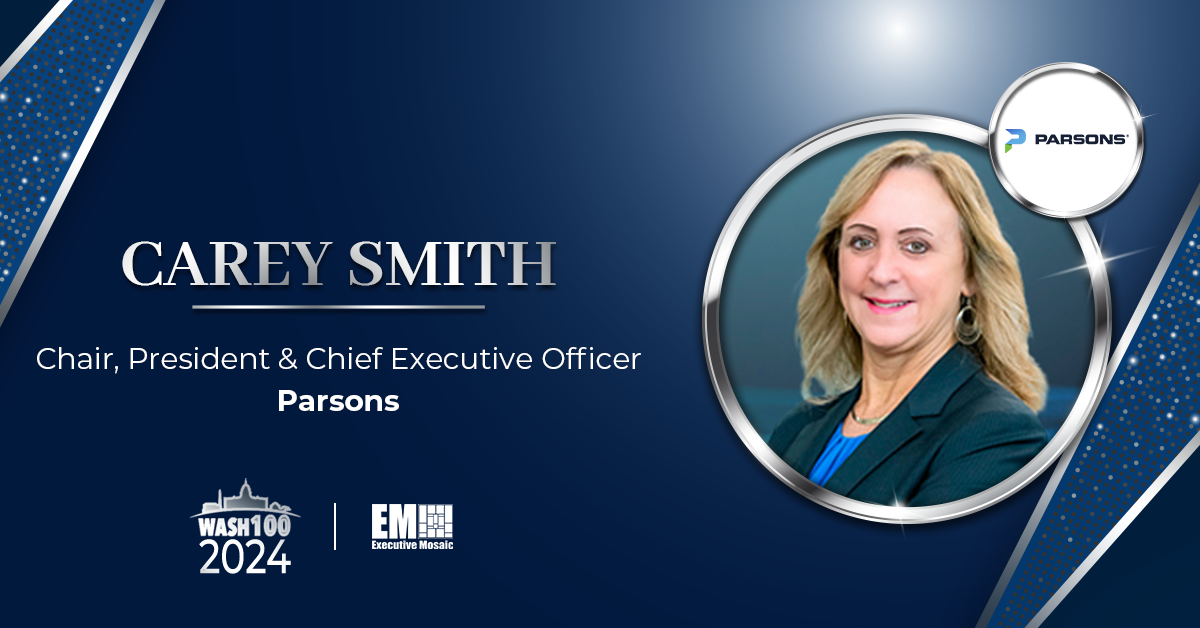As a program manager and engineer in the U.S. Air Force, Rocky Thurston gained the skills he needed to transition smoothly into government contracting. His first work in the field was as a program manager for an intelligence community contract at Booz Allen Hamilton, after which point he took on more assignments and learned and grew in the industry.
Thurston accrued further insights on how to deliver for clients and manage and drive business in roles at heavyweight organizations like Accenture, AT&T, Lockheed Martin and Peraton. At all of these companies he led business efforts for agencies like the departments of Defense and Homeland Security and various federal civilian enterprises. His leadership capabilities congealed when he was named chief operating officer in 2022 at mid-sized outfit DMI, which specializes in digital transformation services. A year ago, he was appointed as the company’s CEO.
In a recent Executive Spotlight interview, Thurston sat down with GovCon Wire to talk through acquisition bid strategy, exciting mergers and acquisitions deals in his time so far with DMI and what makes the company’s culture stand out, among other topics.
GovCon companies of all sizes send representatives to Potomac Officers Club events. Don’t miss the next opportunity to rub shoulders not only with colleagues and competitors, but the most significant chief information officers in the federal government. Register today for the 5th Annual CIO Summit, coming up this Wednesday, April 17.
Tell me about DMI’s culture. What aspects of the company do you think are contributing most to its success while helping to attract and retain top-level talent?
I believe culture is a continuous journey and is never really set in stone. It’s something that you continuously work on to make great. There are five aspects to culture that I like to see in DMI, which we always work on together. The first one is a sense of team and teamwork. We have to work together to accomplish the growth of our business and the delivery for our clients, and to support one another in our career journeys.
This leads me to my second point about culture, which is to have an egoless environment. No egos are allowed. We have a rank structure in the corporation, but you just throw your title out the window when it comes to getting the job done. We all have to be able to roll up our sleeves and support each other when a task needs to be accomplished. This makes for a fun and exciting way of work.
Another important aspect is respect. It means respect for ideas and thoughts and collectively garnering all the intuition and knowledge of your workforce. You have to respect each other, it is critical to having an organization that needs to deliver results.
Then there’s accountability. I’m accountable for what I raise my hand to do, and I expect the same of everyone in the company. When you have that sense of accountability across the workforce, it makes for an organization you want to work for. I’ve been in organizations that didn’t have all of these aspects, and I think you have to have the collective grouping to attract and retain talent and to grow your business.
One more aspect we work on is the concept of employee experience. What experience do you want? Having grown up at all levels in this industry, I know I don’t like barriers to being productive or bureaucracy. We need to eliminate red tape and bureaucratic tasks and have the ability to continuously learn and grow. This kind of experience makes a culture really great.
What factors or GovCon industry trends are influencing your growth strategy as you look toward DMI’s future?
DMI sits at the intersection of the public and private sectors. There is a lot happening in our government today. First and foremost are the continuing resolutions and passing of the budget, which will impact a lot. It affects not just the government contracting community but also our customers, the government themselves. Chief information officers and chief financial officers are grappling with the costs of their technical debt. When faced with budget uncertainty, they need to think differently, shifting from technical debt to technical wellness and prioritizing improvements in their tech stack. This area is crucial, and it’s where we can help the government. Additionally, we have to consider how to prioritize our investments based on where the budget lands.
Another significant factor in the GovCon realm is the election cycle. Every time it happens, there’s a shift in priorities, affecting budget allocations and customer behavior. This impacts our strategic planning, determining which customers to support and which opportunities to pursue. Another trend in the government contracting industry is the proliferation of large corporations through acquisitions. This creates a gap that midsize companies like DMI can fill. We can compete against large corporations while offering personalized attention and focused resources, which is not always the case with mega-corporations. DMI can, and is delivering at scale, making us a top priority for our customers.
On the technical side, the rise of generative AI is notable, with its increasing use in government applications. There’s a growing emphasis on the ethical use of AI, making it essential for companies in this industry to address. Similarly, the adoption of 5G technology is gaining momentum in the government sector. It’s ideal for supporting AI-powered tools and Internet of Things devices at the edge, requiring high bandwidth and low latency. DMI is cognizant of these tech trends, which influence our strategic direction.
How do you set your priorities in an ever-changing market? What are the key factors you look for when making bidding and/or acquisition decisions?
It’s about having discipline around strategic planning. For example, we have an account plan for the Department of Homeland Security, which falls within the national security market. We also have a national security plan with detailed aspects such as opportunities to pursue, competition analysis, potential partners, and customer relationships to develop. A failure to plan is a plan to fail, as I learned from my Air Force days. So, you have to plan it out and prioritize. Within those priorities, you must be prepared to shift as needed.
Opportunities vary widely in their close dates, and there’s always the potential for protests, so you must prepare for that in your budgeting cycle. Having primary, secondary and tertiary targets helps build resilience into your plan. We have a robust methodology for this, allowing us to adapt to the ever-changing market.
In financial planning, there’s a concept of diversification and asset allocation. While DMI serves a wide range of clients, we must ensure coverage in areas likely to withstand changes. We focus on existing customers due to our strong relationships with them. Regarding bid decisions, we have a formal capture process. But, I prefer to assess our relationships with customers and whether we’ve had ample opportunities to introduce DMI and discuss our capabilities before the request for proposals is released. Reacting solely to an RFP is often not the best strategy and increases the likelihood of loss. It’s about winning, and that’s how we aim to make the best decisions.
What can you tell me about DMI’s recent M&A efforts?
We made three acquisitions a few months ago, two of which were professional services firms in GovCon that are performing exceptionally well. They are fully integrated into our operations. One was called Ambit Group, and the other was Aurotech. They were strategic acquisitions, as we included them in our market and account planning sessions to expand in their respective domains: federal financials and federal health. These acquisitions have been highly successful, and I’m thrilled about the talent we acquired and how they’ve seamlessly integrated into our company.
The third acquisition was to bolster our leading managed mobility services capability. We’ve been recognized as a Leader in the Gartner Magic Quadrant for Managed Mobility Services, Global, eight times in a row. We acquired a company to enhance our technology in managing the expenses of connected assets, including the cost of devices and their associated plans or subscriptions. This tool set is powerful, and there are very few competitors in our market. We’re proud to announce that we will soon be the first to market with a fully FedRAMPed asset expense management tool. This achievement underscores our commitment to innovation and security in the federal market.
I’m incredibly excited about this capability because it’s something DMI has excelled in commercially for years. Bringing it into the federal market allows us to introduce commercial best practices into the government sector, addressing a critical need. We’re poised to deliver exceptional value in this domain, bridging the gap between commercial and public sectors. Stay tuned for our upcoming press release on this significant milestone.









